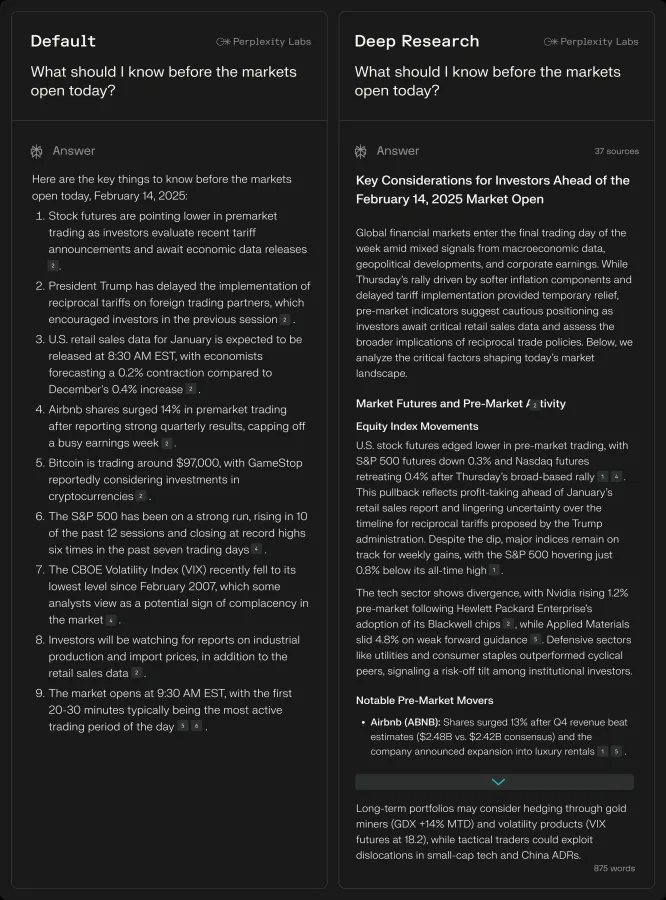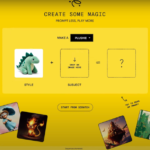In a bold move that signals the evolution of AI-driven research, Perplexity has unveiled its latest feature—Deep Research. This launch positions the company alongside industry giants like Google and OpenAI, both of which recently introduced similar tools designed to enhance in-depth research capabilities.
The Deep Research feature, announced on Friday, is tailored for professionals seeking comprehensive, citation-backed insights. Unlike standard consumer chatbots that often provide superficial responses, Deep Research is engineered to deliver expert-level analysis across various fields, from finance and marketing to product research and beyond.
The Rise of AI-Powered Deep Research Tools
The AI research landscape has been heating up in recent months. Google first made waves in December with the introduction of Deep Research within its Gemini AI platform. OpenAI followed suit earlier this month, launching its own research agent under the same name. Now, Perplexity has entered the race with a version that offers a compelling balance of speed, accessibility, and accuracy.
Each of these tools shares a common goal: to revolutionize the way professionals conduct research by generating well-cited, structured, and reliable reports. The AI models behind these tools are designed to iteratively search, read, and analyze relevant documents, mimicking the way a human researcher would refine their approach based on newly discovered information.

How Perplexity’s Deep Research Works
Currently available on the web, Perplexity’s Deep Research is set to expand to Mac, iOS, and Android apps soon. Users can activate it by selecting the “Deep Research” option from a drop-down menu when submitting a query. Once engaged, the system generates a detailed report that can be exported as a PDF or shared as a Perplexity Page, making collaboration and knowledge-sharing seamless.
Unlike traditional AI assistants that provide quick, often generic responses, Perplexity’s Deep Research goes several steps further. The tool dynamically refines its research process, adapting its approach based on newly gathered insights—just as a human researcher would. By iterating through multiple search layers, it identifies the most relevant sources, processes complex information, and synthesizes findings into coherent, actionable insights.
Benchmarking Performance: How Perplexity Stacks Up
Perplexity’s Deep Research isn’t just another AI-powered tool—it has already proven its capabilities on rigorous academic benchmarks. One notable test, Humanity’s Last Exam, evaluates AI performance across expert-level questions in various academic disciplines. Perplexity’s Deep Research scored an impressive 21.1%, outpacing major competitors such as Gemini Thinking (6.2%), Grok-2 (3.8%), and OpenAI’s GPT-4o (3.3%). However, OpenAI’s Deep Research currently leads with a score of 26.6%.
The Pricing Model: Free vs. Premium Access
One of the most striking differences between Perplexity and OpenAI’s offerings is accessibility. OpenAI’s Deep Research is currently locked behind a hefty $200-per-month Pro subscription, with plans to expand to other pricing tiers in the future. In contrast, Perplexity provides a much more flexible model—its Deep Research tool is available for free, albeit with a limited number of queries per day for non-subscribers. Paying subscribers, however, can enjoy unlimited access.
Speed and Efficiency: A Key Differentiator
Perplexity’s Deep Research also distinguishes itself with its impressive speed. While OpenAI’s version takes anywhere from 5 to 30 minutes to complete an analysis, Perplexity’s tool typically delivers results in under three minutes. This efficiency makes it an attractive option for users who need rapid yet reliable insights without long wait times.
Comparing the AI Research Giants: Who Leads Where?
When evaluating the strengths of each AI research tool, three key differentiators emerge:
- Perplexity AI: Best for speed and accessibility, making it ideal for casual researchers and professionals who need quick, structured insights without a paywall.
- OpenAI Deep Research: Excels in analytical depth, making it the go-to option for enterprise-level research requiring thorough, high-stakes analysis.
- Google Gemini: Offers seamless integration with Google’s existing productivity ecosystem, making it particularly useful for professionals already embedded in Google’s workflow tools.
The Future of AI-Driven Research
While AI-powered research tools are still in their infancy, they are already reshaping how professionals and businesses gather and analyze information. However, as The Economist recently pointed out, these systems are not without their flaws. Some challenges include a lack of creativity in interpreting data, over-reliance on readily available sources, and the potential downside of “outsourcing all your research to a supergenius assistant”—a move that could diminish critical thinking and human ingenuity in research processes.
That being said, AI-driven research tools like Perplexity’s Deep Research are undeniably a step forward in democratizing expert-level analysis. By making powerful AI-driven research more accessible, faster, and cost-effective, Perplexity is not just competing with tech giants—it is setting the stage for a new era of intelligent information gathering.
As AI continues to evolve, one thing is certain: the way we conduct research will never be the same again.










